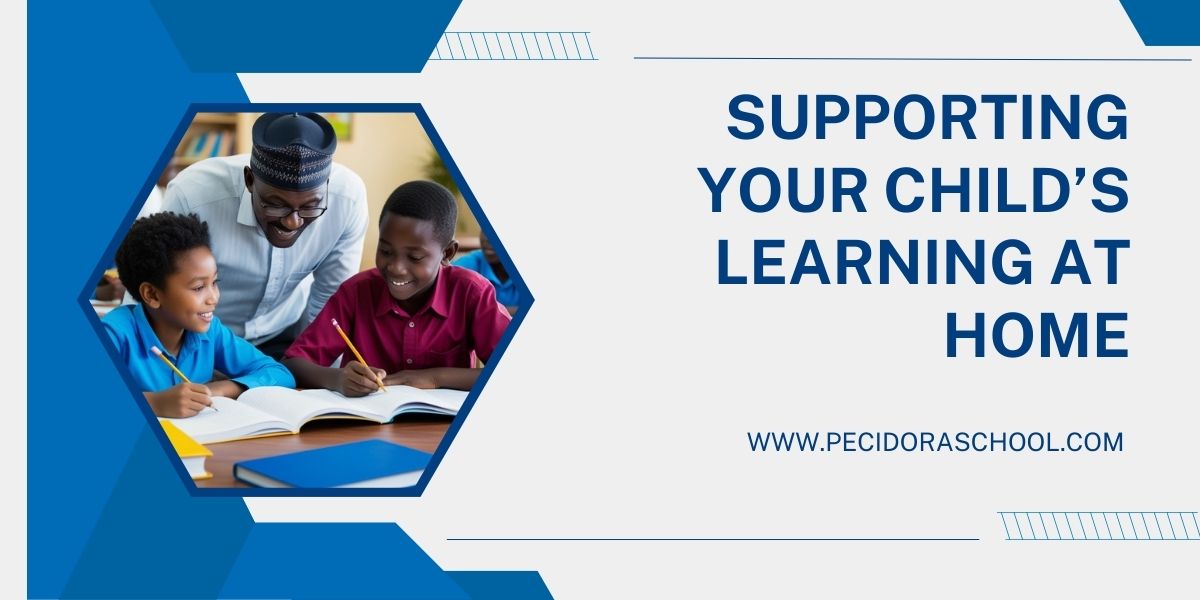How to Encourage Learning at Home: Tips for Parents from Pecidora’s Educators
Published: 08 Oct 2024

Introduction
As partners in education, parents play a pivotal role in their child’s academic success. At Pecidora International School, we believe that fostering a supportive learning environment at home is essential for student growth. This webpage offers practical tips and strategies that parents can use to encourage learning at home, creating a foundation for lifelong learning.
1. Create a Conducive Learning Environment
Setting the Stage for Success: A designated study space can significantly enhance a child's ability to focus and learn effectively. Here are some ways to create an ideal learning environment:
- Choose a Quiet Space: Identify a spot in the home that is free from distractions, such as noise and clutter.
- Organize Supplies: Ensure that all necessary materials (books, stationery, etc.) are easily accessible.
- Limit Distractions: Turn off TVs and limit screen time during study hours to maintain focus.
2. Establish a Routine
Consistency is Key: A well-structured routine helps students develop good study habits and time management skills. Here’s how to create a balanced daily routine:
- Set Study Times: Encourage a consistent schedule for homework and studying, preferably at the same time each day.
- Include Breaks: Incorporate short breaks to prevent burnout and maintain concentration.
- Balance Activities: Ensure a mix of academic work, physical activities, and family time in the daily schedule.
3. Stay Involved and Communicate
Engagement Matters: Being involved in your child’s education shows that you value their learning. Here are effective ways to stay engaged:
- Ask About School: Regularly inquire about what your child learned in school and their thoughts on the subjects.
- Review Homework Together: Help them with assignments when needed, and provide support without taking over.
- Attend School Events: Participate in parent-teacher meetings and school activities to strengthen the school-home connection.
4. Encourage Reading and Exploration
Nurturing a Love for Learning: Reading is fundamental to a child’s education. Here’s how to promote reading and exploration:
- Read Together: Set aside time each day to read together, whether it’s books, articles, or educational websites.
- Visit Libraries and Bookstores: Regular trips to libraries or bookstores can ignite interest in different subjects and genres.
- Explore Topics of Interest: Encourage children to research topics they are curious about, fostering a sense of independence in learning.
5. Support Independence and Responsibility
Building Confidence and Skills: Encouraging children to take ownership of their learning fosters independence and responsibility. Consider these strategies:
- Set Goals Together: Help your child set achievable academic and personal goals, and discuss steps to reach them.
- Encourage Decision-Making: Allow children to make choices regarding their study methods or projects to enhance critical thinking.
- Teach Time Management: Guide them in managing their time effectively, from homework assignments to personal activities.
6. Promote a Growth Mindset
Encouraging Resilience: A growth mindset encourages children to view challenges as opportunities for growth. Here’s how to cultivate this mindset at home:
- Praise Effort, Not Just Results: Acknowledge the effort they put into their work rather than solely focusing on grades.
- Embrace Mistakes: Teach children that mistakes are part of the learning process and can lead to improvement.
- Encourage Perseverance: Share stories of overcoming obstacles, highlighting the importance of resilience in achieving success.
7. Utilize Educational Resources
Leveraging Tools for Learning: There are numerous resources available to enhance learning at home. Here are some suggestions:
- Online Learning Platforms: Explore educational websites and apps that provide interactive learning experiences.
- Workshops and Webinars: Take advantage of workshops offered by Pecidora International School or local organizations that focus on various subjects.
- Educational Games: Use games and activities that promote learning in a fun and engaging way.
Conclusion: Partnering for Success
By implementing these strategies, parents can create a nurturing and effective learning environment at home, which is crucial for their child’s academic success. At Pecidora International School, we are dedicated to partnering with families to support students in their educational journeys.
Need more information? Feel free to contact our educators or visit us at Pecidora International School for further guidance on supporting your child’s learning at home.
Call to Action
- Join Our Parent Workshops!
- Access Our Learning Resources Online!
- Contact Us for Personalized Support!
Back to News Feed
